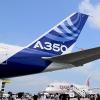Sign in to follow this
Followers
0

Airbus’s Longest Aircraft Gets More Seats to Help Rebuild Value
By
flee, in General Aviation

By
flee, in General Aviation